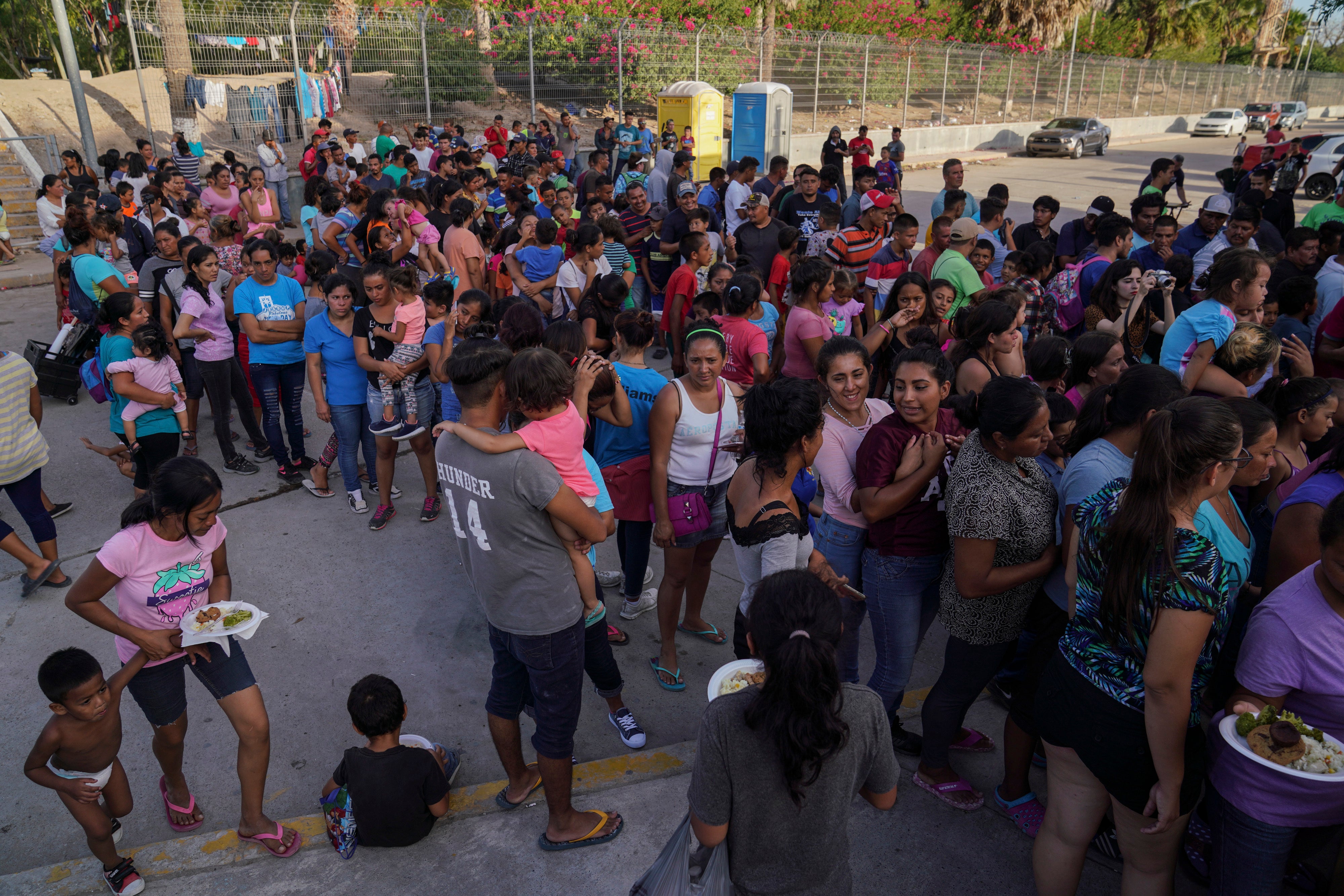Mexico undecided on reinstating "remain in Mexico" policy
Mexico’s Foreign Relations Department is not saying whether the government will allow the U.S. to reinstate the “remain in Mexico” policy of sending asylum seekers back across the border to wait for hearings on asylum claims

Your support helps us to tell the story
From reproductive rights to climate change to Big Tech, The Independent is on the ground when the story is developing. Whether it's investigating the financials of Elon Musk's pro-Trump PAC or producing our latest documentary, 'The A Word', which shines a light on the American women fighting for reproductive rights, we know how important it is to parse out the facts from the messaging.
At such a critical moment in US history, we need reporters on the ground. Your donation allows us to keep sending journalists to speak to both sides of the story.
The Independent is trusted by Americans across the entire political spectrum. And unlike many other quality news outlets, we choose not to lock Americans out of our reporting and analysis with paywalls. We believe quality journalism should be available to everyone, paid for by those who can afford it.
Your support makes all the difference.Mexico’s Foreign Relations Department refused to say Wednesday whether the government will allow the U.S. to reinstate the “remain in Mexico” policy of sending asylum seekers back across the border to wait for hearings on asylum claims.
The U.S. Supreme Court refused Tuesday to block a lower court ruling ordering the administration of President Joe Biden to reinstate the Trump-era policy of forcing people to wait in Mexico for hearings on asylum claims.
Roberto Velasco, Mexico's director for North American affairs, said the court ruling is not binding on Mexico. He stressed that Mexico's “immigration policy is designed and executed in a sovereign manner.”
“The Mexican government will start technical discussions with the U.S. government to evaluate how to handle safe, orderly and regulated immigration on the border,” Velasco said.
Mexico is not legally obligated to receive returning migrants who are not Mexican citizens, and most of the asylum seekers are not.
But President Andrés Manuel López Obrado has had good relations with the U.S. government on immigration matters and has willingly cooperated in blocking migrant caravans and deporting migrants trying to reach the U.S. border. López Obrador allowed the U.S. to implement the first version of the remain in Mexico policy under President Donald Trump
It’s not clear how many people will be affected by the Supreme Court ruling and how quickly. Under the lower court ruling, the administration must make a “good faith effort” to restart the program.
There also is nothing preventing the Biden administration from trying again to end the program, formally called Migrant Protection Protocols
During Trump’s presidency, the policy required tens of thousands of migrants seeking asylum in the U.S. to turn back to Mexico. It was meant to discourage asylum seekers, but critics said it denied people the legal right to seek protection in the U.S. and forced them to wait in dangerous Mexican border cities.
During the Trump administration, the Mexican government said it was cooperating with the program for humanitarian reasons.
Although migrants were granted humanitarian visas to stay in Mexico until they had their U.S. hearings, they often had to wait in dangerous areas controlled by cartels, leaving them vulnerable to being kidnapped, assaulted, raped or even killed. Others were transported by bus to parts of southern Mexico or “invited” to return to their home countries.
Mexico technically could block the program by refusing to accept migrants asked to stay in Mexico under the Migrant Protection Protocols. But analysts like Tonatiuh Guillén, former head of Mexico’s migration agency, consider that unlikely given the country’s history of cooperation with the U.S.
Guillén said Mexican officials will probably go along even though the country doesn’t have sufficient resources to deal with an influx of asylum seekers at the border and nonprofit shelters south of the border are overwhelmed.